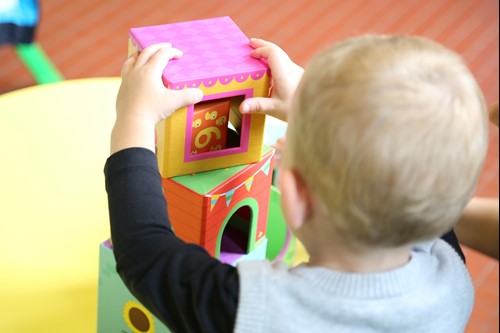How to Open a Nursery in the UK?
The demand for nursery services in the UK has seen an undeniable surge, fuelled by significant population growth and changing family dynamics, where both parents are increasingly part of the workforce. Recent studies underscore a critical need for additional childcare services to accommodate this burgeoning demand.

Understanding the Demand for Nurseries In the UK
In 2021, the Office for National Statistics (ONS) reported that nearly 5 million children under five were in England and Wales. More than a third of families with young kids had both parents working full-time.
This trend is driven by more women entering the workforce, leading to a surge in demand for nursery services in the UK.
What Are the Different Types of Nurseries?
In the UK, nurseries vary to suit different needs:
* Private day nurseries: privately owned
* Local authority day nurseries: run by governments
* Workplace nurseries: found at workplaces
Choosing the type of nursery that best aligns with your needs and aspirations is a crucial first step in your venture.
How Much Does It Cost to Open a Nursery in the UK?
Opening a home-based nursery costs £10,000 to £50,000 on average. Includes licensing, insurance, supplies, and marketing.
Opening a nursery in a commercial or community space requires substantial financial investment, typically ranging from £70,000 to over £100,000. Costs include premises lease, safety regulations, staffing, educational materials, utilities, insurance, and maintenance.
The financial aspect of opening a nursery involves initial investment analysis, understanding of ongoing operational costs, and assessing the overall financial viability. Securing funding through loans or investors requires meticulous planning.
A compelling, well-structured business plan, possibly enhanced with informative infographics, can significantly boost your chances of approval. (What is an infographic?)
What Qualifications Do I Need to Open a Nursery in the UK?

The first step in understanding the qualifications needed is to become acquainted with the establishment relevant to your UK nation:
* England: Ofsted (Office for Standards in Education, Children's Services and Skills)
* Scotland: The Care Inspectorate
* Wales: Care Inspectorate Wales (CIW)
* Northern Ireland: The Health and Social Care Trusts
Every establishment has unique requirements, but they typically agree on fundamental qualifications and standards to ensure childcare settings are safe and of high quality.
Qualifications in England
Opening a nursery requires specific qualifications in England. These include a Level 3 Certification in early childhood education for managerial roles, Business Management Skills for smooth operations, and staff with at least Level 2 childcare credentials, along with training in safeguarding and paediatric first aid.
Additional prerequisites involve DBS (Disclosure and Barring Service) checks and a health declaration verified by a General Practitioner.
Additionally, Ofsted stipulates professionals to hold a degree in education such as BA (Hons) Early Childhood Studies or an equivalent. Such prerequisites can enhance the quality of service delivery and honing skills necessary for staff management.
Qualifications in Scotland
In Scotland, The Care Inspectorate requires professionals to hold a relevant qualification in childcare at Level 5 or above. This includes a National Certificate (NC) or Higher National Diploma (HND) in Early Education and Childcare.
Additionally, the Scottish Social Services Council (SSSC) must register all childcare staff.
Qualification in Wales
In Wales, the Care Inspectorate Wales (CIW) requires registered providers to have a relevant qualification at Level 3 or above in Early Years and Childcare.
This includes qualifications such as the CACHE Level 3 Diploma in Childcare and Education or BTEC National Diploma in Children's Play, Learning and Development.
Qualifications in Northern Ireland
In Northern Ireland, the Department of Health, Social Services and Public Safety (DHSSPS) requires all registered childminders to have completed a recognised childcare training course, such as the Level 2 Diploma in Children's Care, Learning and Development.
Moreover, these qualifications are crucial to acquire other certifications such as Early Years Teacher Status (EYTS). Obtaining EYTS expands your nursery's potential and allows you to gain further government funding for providing high-quality early education.
Regulations and Requirements to Open a Nursery in the UK

To open a nursery in the UK, for example in England, there are certain regulations and requirements that need to be met. These include:
Registering with Ofsted
In order to open a nursery in the UK, you must register with Ofsted and meet their requirements for registration. This includes submitting an application form, providing relevant documents, and undergoing an inspection process to ensure that your nursery meets the necessary standards.
Once registered, your nursery will be regularly inspected to ensure that it continues to meet these standards.
Health and Safety Requirements
Opening a nursery in the UK also requires compliance with specific health and safety requirements.
* Having a Health and Safety Policy in place that outlines how risks are identified, assessed and managed
* Ensuring the premises is safe and suitable for children, including having adequate space, ventilation, and access to outdoor play areas
* Providing appropriate equipment and facilities that are safe and age-appropriate
* Conducting regular risk assessments and addressing any potential hazards immediately
Meeting regulations and requirements is vital for legal operation and creating a safe, nurturing environment for children to thrive and develop effectively.
Qualified Staff and Child-to-Staff Ratios
To ensure the safety and well-being of children in a nursery, it's essential to have a sufficient number of qualified staff present at all times.
The specific child-to-staff ratio varies depending on the age of the children, but as a general guideline, there should be:
* 1 adult for every 3 children under 2 years old
* 1 adult for every 4 children aged 2-3 years old
* 1 adult for every 8 children aged 3-5 years old
Moreover, all staff members must have the appropriate qualifications and undergo regular training to ensure they are equipped to care for young children.
Curriculum and Learning Standards
UK nurseries create safe spaces while focusing on children's learning. They follow the EYFS framework, setting learning goals for kids aged 0-5.
The EYFS framework covers seven areas of learning and development:
* Communication and Language
* Physical Development
* Personal, Social and Emotional Development
* Literacy
* Mathematics
* Understanding the World
* Expressive Arts and Design
Nurseries should organise fun activities that help kids grow, keep an eye on their progress, and use assessments to guide them in reaching their full potential in all learning areas.
Partnership with Parents
Nurseries in the UK partner with parents to boost child development by communicating, sharing info, and engaging parents in learning. They might even provide resources for home learning. This teamwork builds a solid support network for kids to flourish at nursery and home.
Conclusion
In conclusion, opening a nursery in the UK presents a valuable opportunity to provide children with a structured yet nurturing environment crucial for their early development. By adhering to the EYFS framework and offering a well-rounded curriculum, nurseries can support children's educational, emotional, and social needs effectively.
Furthermore, maintaining high staff qualifications and appropriate staff-to-child ratios ensures that each child receives the necessary attention and care.
Collaborating with parents strengthens the nursery's impact by extending support beyond the premises. Overall, UK nurseries offer a safe and supportive setting that fosters children's holistic growth, setting a strong foundation for their academic, social, and emotional development.
FAQs
Is opening a nursery profitable in the UK?
Profitability hinges on various factors, including location, operational efficiency, and market demand. While challenges exist, the potential for a satisfactory return on investment is substantial.
Are nurseries open on bank holidays in the UK?
Operational norms vary; however, most nurseries close on bank holidays, with some exceptions based on individual policies or parent demand.
How to promote a nursery?
Promoting a nursery involves strategies like word-of-mouth, networking, social media ads, open days for parents, and child development events. Collaborating with schools or child care organisations can boost services.